This morning, we kick off TED2017 in the new Community Theater with a program of fresh ideas, music and dance from the TED2017 Fellows and Senior Fellows. These Fellows are change-makers from many fields — design, tech, education, business, science and many more — offering a peek at the future us.
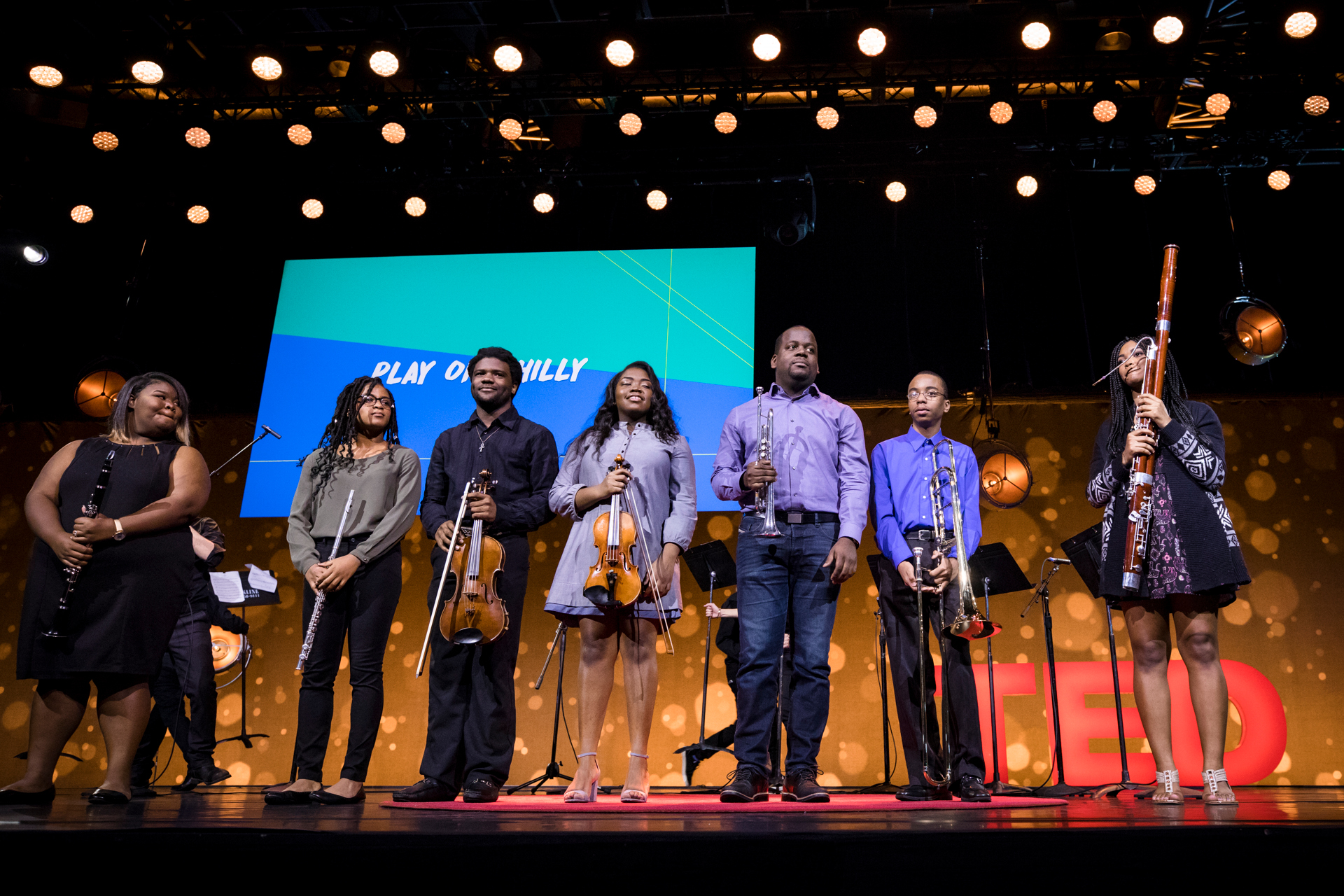
Stanford Thompson and musicians from Play On, Philly! — Jessica Camara on clarinet, Sophia Radford on flute, Zebadiah Coombs on viola, Akili Farrow on violin, Stanford Thompson on trumpet, Christian Kersey on trombone and Elexys McDowell on bassoon– perform at TED2017, April 24, 2017, Vancouver, BC, Canada. Photo: Ryan Lash / TED
Stanford Thompson opens the TED Fellows sessions, performing the Shaker tune “Simple Gifts” with six musicians from Play On, Philly!, a music education and social development program that engages Philadelphia kids in music-making together. “For us, the significance of this piece goes beyond the celebration of Shaker principles of simplicity and humility,” Thompson tells us. “This piece – arranged by Sheridan Seyfried – was performed at President Barack Obama’s inauguration in 2009, and left an impression of hope, love and mutual respect for all in the hearts of our students. As we help the TED community settle in for this conference, we look forward to helping them also imagine the future of themselves through our rendition of this song.” Performers: Akili Farrow on violin, Zebadiah Coombs on viola, Sophia Radford on flute, Jessica Camara on clarinet, Elexys McDowell on bassoon, Christian Kersey on trombone — and Stanford Thompson on trumpet.
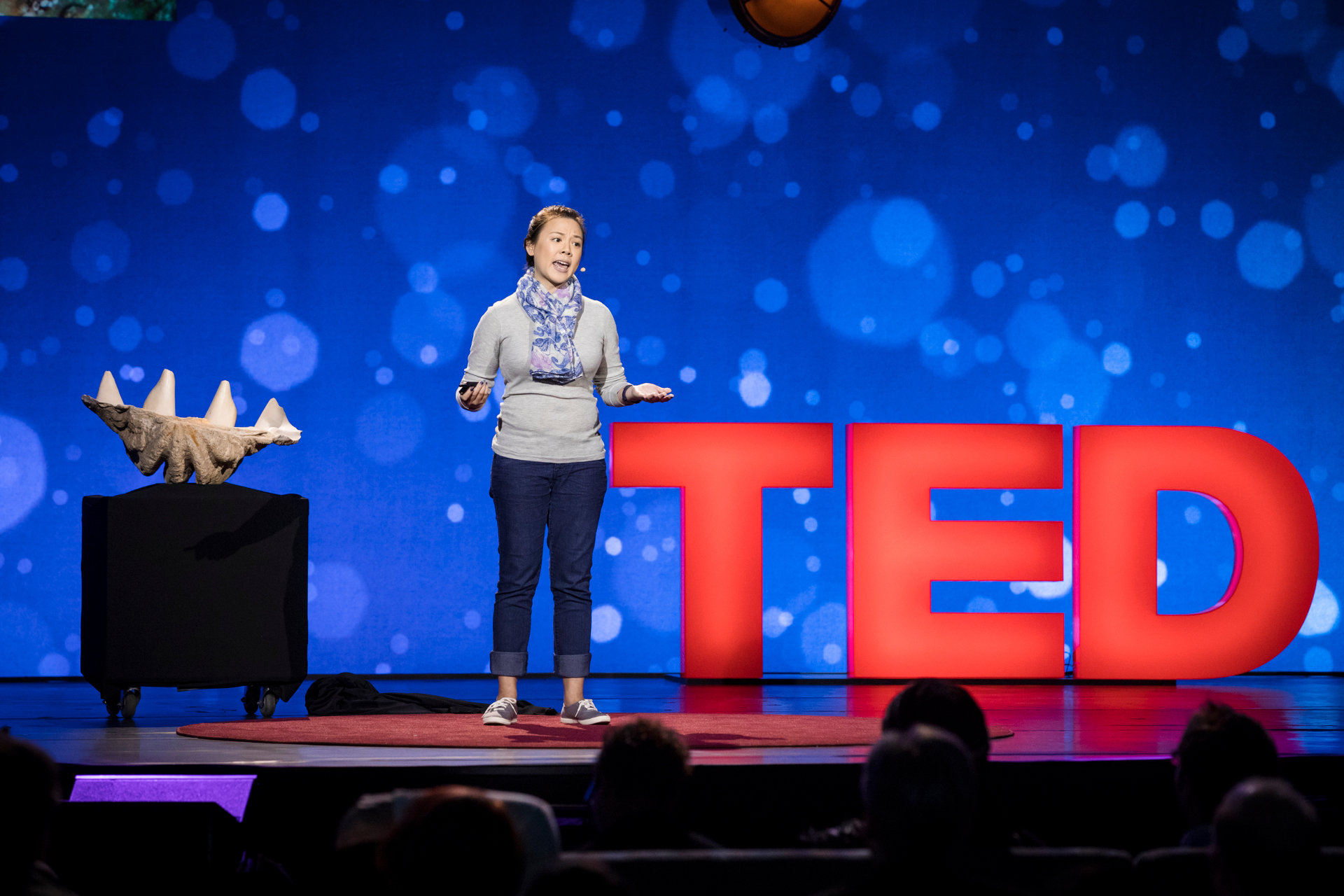
Marine biologist Mei Lin Neo shares the story (and the struggles) of the giant clam during the TED Fellows talks at TED2017, April 24, 2017, Vancouver, BC, Canada. Photo: Ryan Lash / TED
Man-eating creatures of the deep, or canary in the marine ecosystem coal mine? Marine biologist Mei Lin Neo is utterly obsessed with the giant clam of the Indo-Pacific. These legendary creatures, which can measure up to 5 feet across, weigh up to 550 pounds and can live up to 100 years, were once thought to attack humans. In truth, humans are a far greater danger to giant clams. They’re a prized seafood delicacy, and fossilized giant clamshells are so popular as an ornamental material that coral reefs are being destroyed to mine them. All this is disastrous for the giant clam, which Neo has identified as playing a key role in coral reef ecosystems – providing calcium for reef building and food and shelter for reef inhabitants. They’re also indicators of reef health: when giant clams disappear, it bodes ill for reefs.
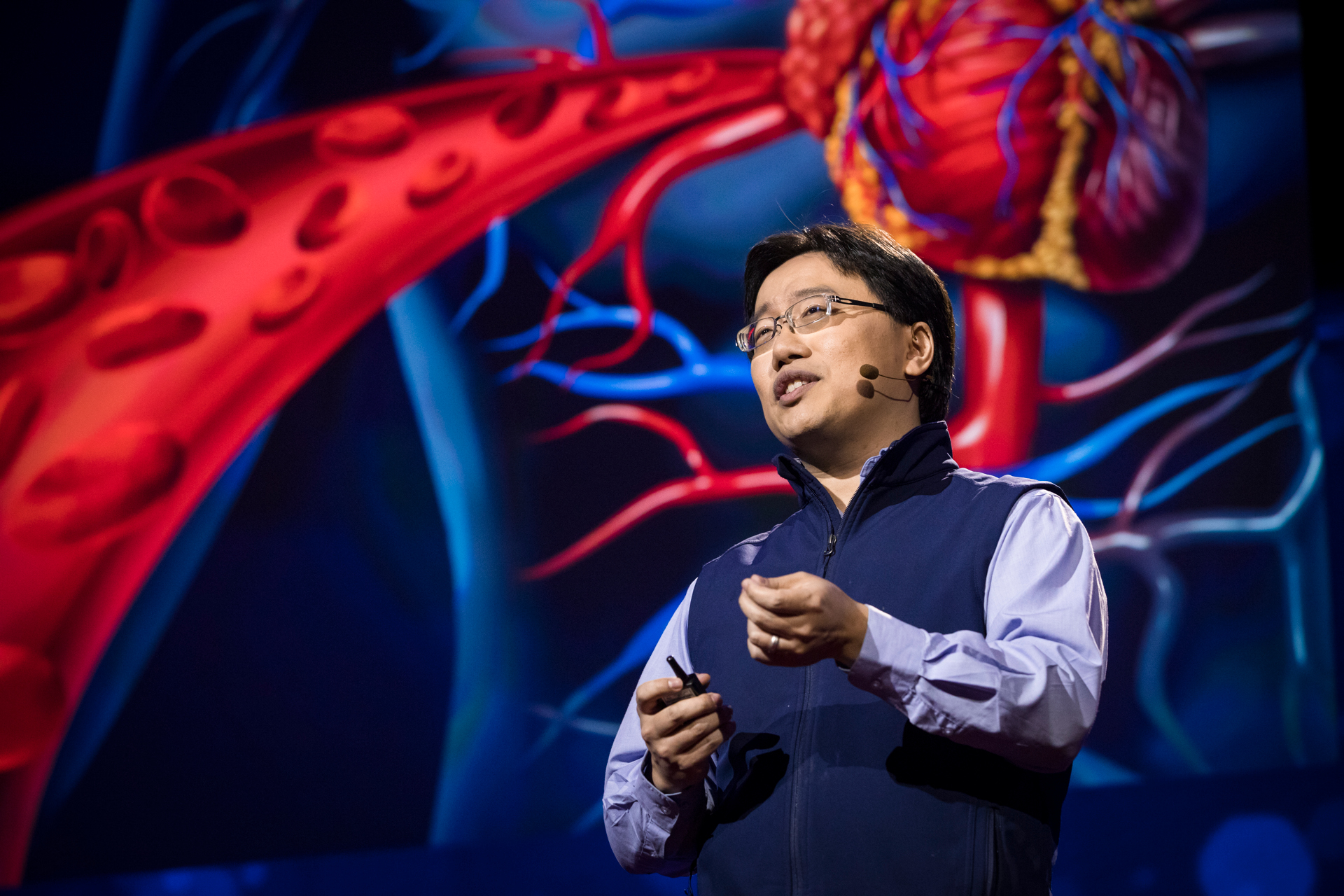
TED Senior Fellow Jimmy Lin talks through a new early-detection test for cancer at TED2017, April 24, 2017, Vancouver, BC, Canada. Photo: Ryan Lash / TED
Cancer diagnostics are notoriously unpleasant and frustratingly ineffective – medical procedures are invasive, require infrastructure, are often inefficient, or are not applicable to all patients. To make things worse, with current methods, cancer is often detected too late. Jimmy Lin and his colleagues are hoping to turn this around, with a breakthrough technique that catches the presence of the disease via a blood test. It turns out that our blood circulatory system carries the DNA of dying cancer cells, says Lin, so as cancer cells die, we can detect their DNA by collecting blood, extracting and sequencing DNA, then generating data that can be analyzed for small signals of cancer’s presence. With this test, Lin’s lab was able to detect recurrence of cancer 100 days earlier than traditional techniques – a ray of hope, as early detection is key to curing cancer.
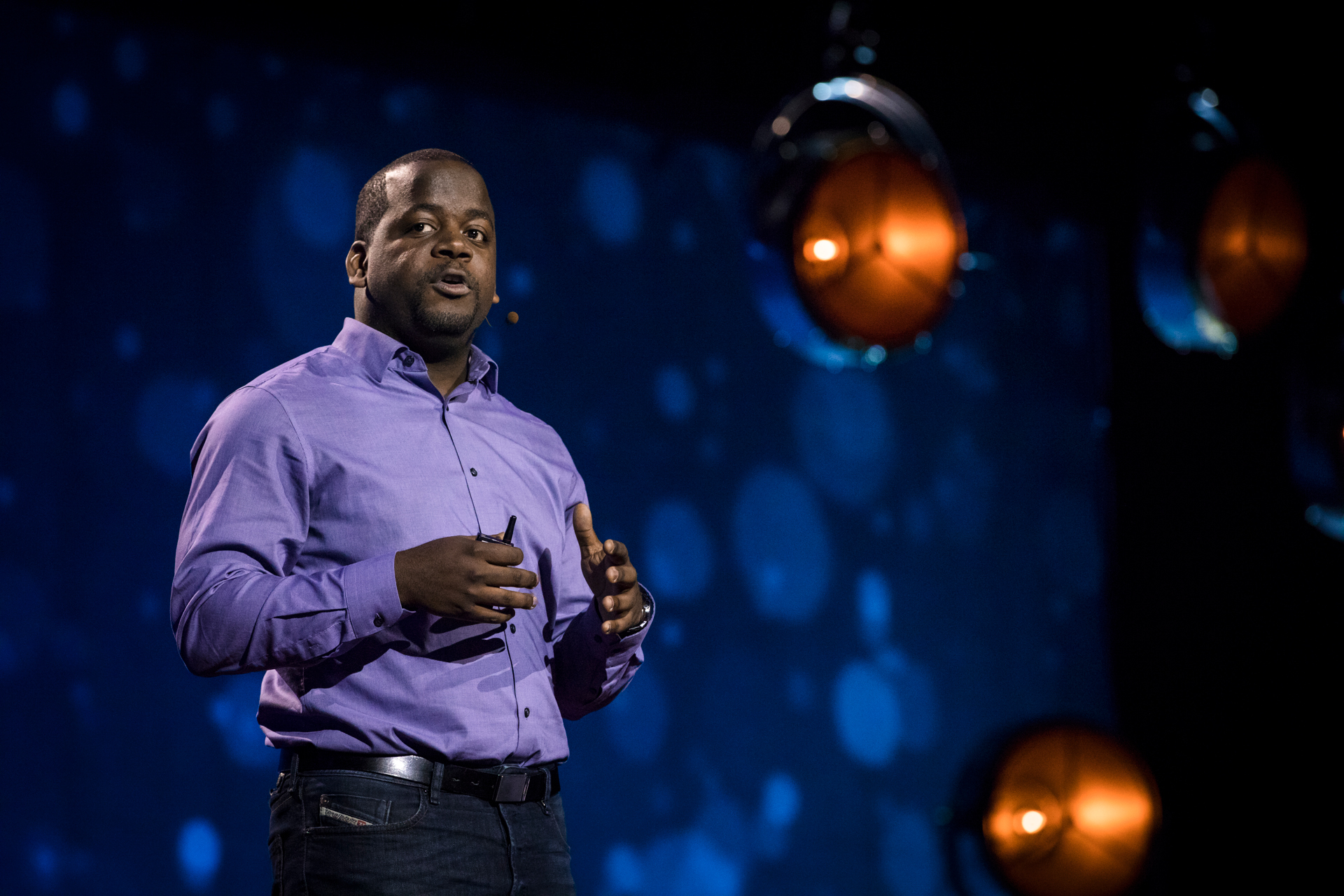
Musician and educator Stanford Thompson quotes his mentor, Dr. Jose Antonio Abreu: “Culture for the poor should not be a poor culture.” He speaks at TED2017, April 24, 2017, Vancouver, BC, Canada. Photo: Ryan Lash / TED
Trumpeter Stanford Thompson heads back to stage to speak about his own work. He grew up in a family of 10, in a low-income neighborhood where, he says, there were many opportunities to take the wrong turn. Thankfully, his parents nurtured his love of music and allowed that to shape his life; he attended the Curtis Institute of Music, leading to a career playing in the concert halls of Europe, Asia and the Americas. Wanting to help other youth in need, Thompson worked with TED Prize winner Dr. Jose Antonio Abreu on his system of youth orchestras, El Sistema, inspiring Thompson’s own Play On, Philly! As he says: “Abreu used to say ‘Culture for the poor should not be a poor culture.’ That was the guiding philosophy of my childhood and that would become the guiding philosophy of Play On, Philly.” He says: “We all have responsibility of providing the best instruments for the poorest kids, and the best teachers for the most vulnerable kids, and best musical opportunities for the most marginalized kids.”

Rebecca Brachman is testing a treatment that may prevent the onset of depression and PTSD. She speaks at TED2017, April 24, 2017, Vancouver, BC, Canada. Photo: Ryan Lash / TED
What if there was a way to prevent depression and PTSD before it happens? Rebecca Brachman is at work on the world’s first prophylactic drugs to prevent mental illness and increase resilience to stress – also known as preventative psychopharmaceuticals. While current treatments for depression and PTSD focus on suppressing symptoms, Brachman and her colleagues have discovered a drug that prevents the disorder from developing in the first place, by enhancing stress resilience, the body’s natural ability to bounce back from the negative effects of stressors. These drugs don’t decrease cognitive perception of stressful experiences, but instead work on a biological level. If such prophylactics become readily available, they could have a huge beneficial impact on the lives of soldiers, aid workers, ER doctors, victims of trauma and more.
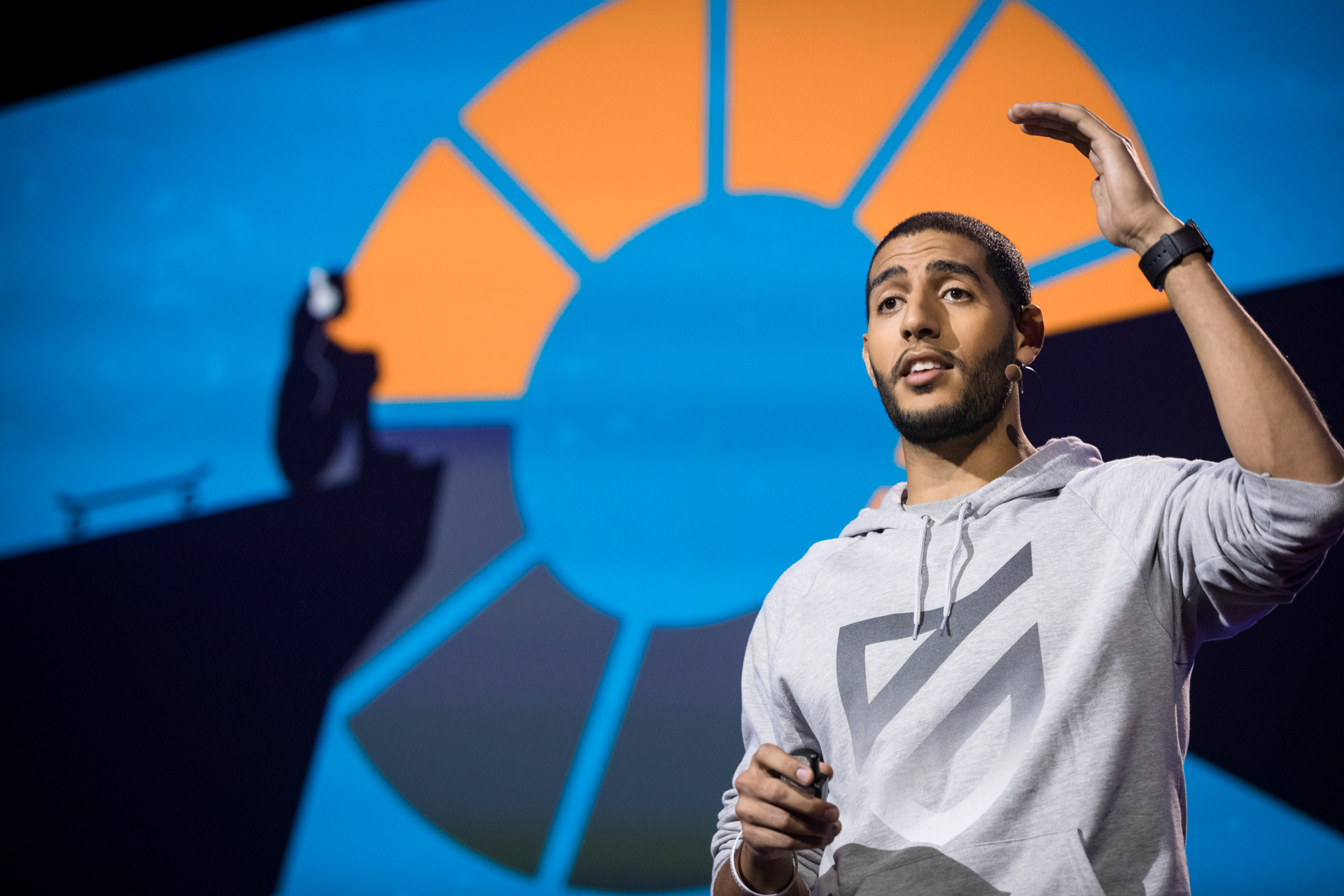
Karim Abouelnaga wants to help kids avoid the summer slump, which causes kids to forget about three months of their education every year. He speaks at TED2017, April 24, 2017, Vancouver, BC, Canada. Photo: Ryan Lash / TED
Entrepreneur Karim Abouelnaga grew up poor, with a single mother on government aid, attending one of New York City’s many struggling public schools. Through mentorship and hard work, Abouelnaga got to Cornell, where he learned about the very real achievement gap between rich and poor that had affected his own family. “Research shows two-thirds of the achievement gap can be directly attributed to summer learning loss,” says Abouelnaga, and “in low-income neighborhoods, children forget about three months of what they learned during the school year over the summer.” Through his summer learning organization Practice Makes Perfect, kids in need are mentored by high-school peers – who are in turned mentored by college students and teachers.
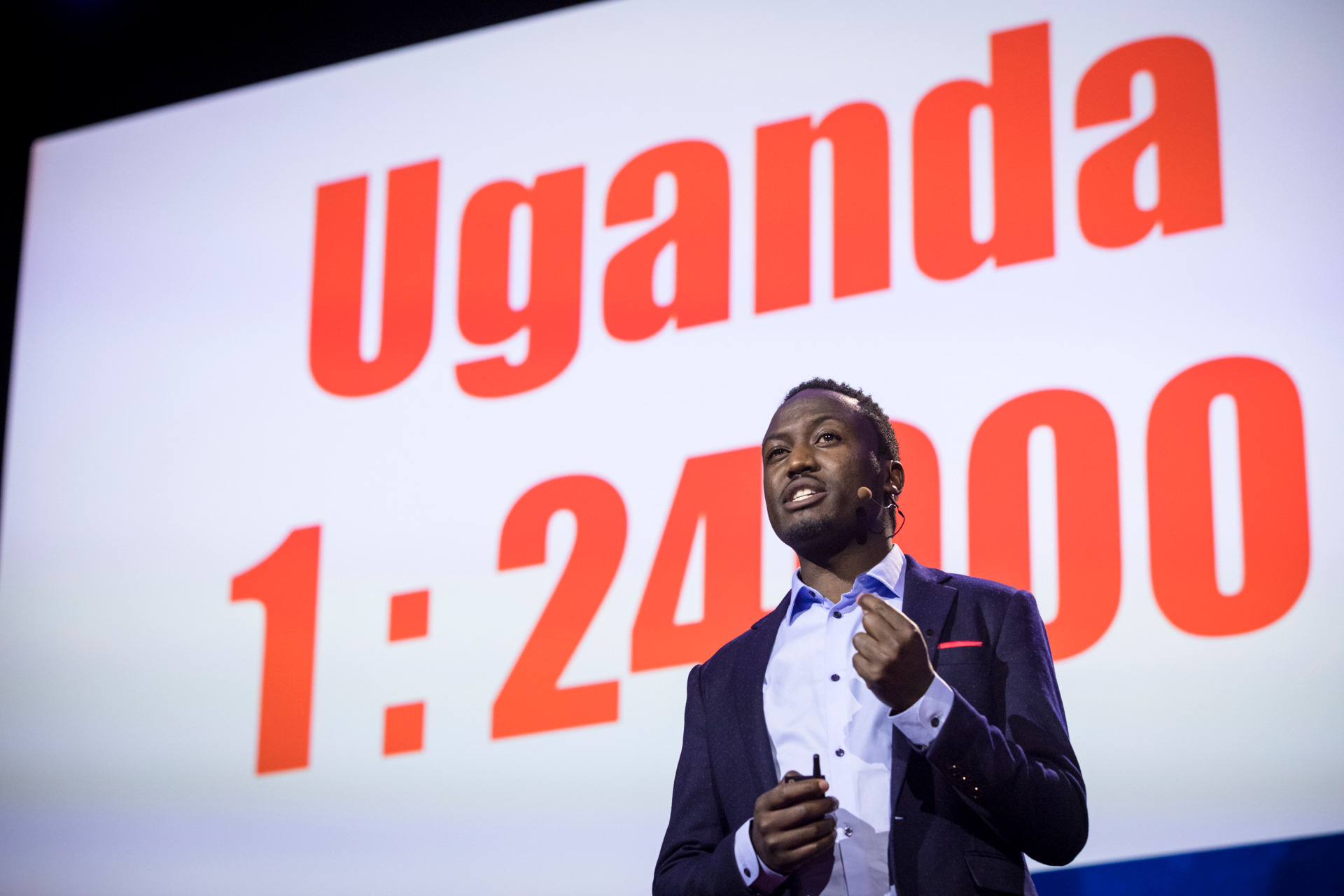
Christopher Ategeka is working to help African-trained doctors stay home and work in Africa, instead of taking part in global brain drain. He speaks at TED2017, April 24, 2017, Vancouver, BC, Canada. Photo: Ryan Lash / TED
In Christopher Ategeka’s native Uganda, good doctors are scarce. He knows this from experience: both his parents died of HIV/AIDS, and later his brother of malaria – deaths that could have been prevented by functioning health care. The problem: brain drain of health care professionals as African doctors find better-paying jobs abroad, while those who remain are underpaid and overworked. Ironically, says Ategeka, the global healthcare community spends money sending volunteer doctors to developing countries – money that could be spent helping local medical professionals stay home. Ategeka’s nonprofit Health Access Corps raises funds to help health care professionals stay and work locally. The result: communities are getting better access to health care, including vaccinations, and access to HIV/AIDs and malaria medications.
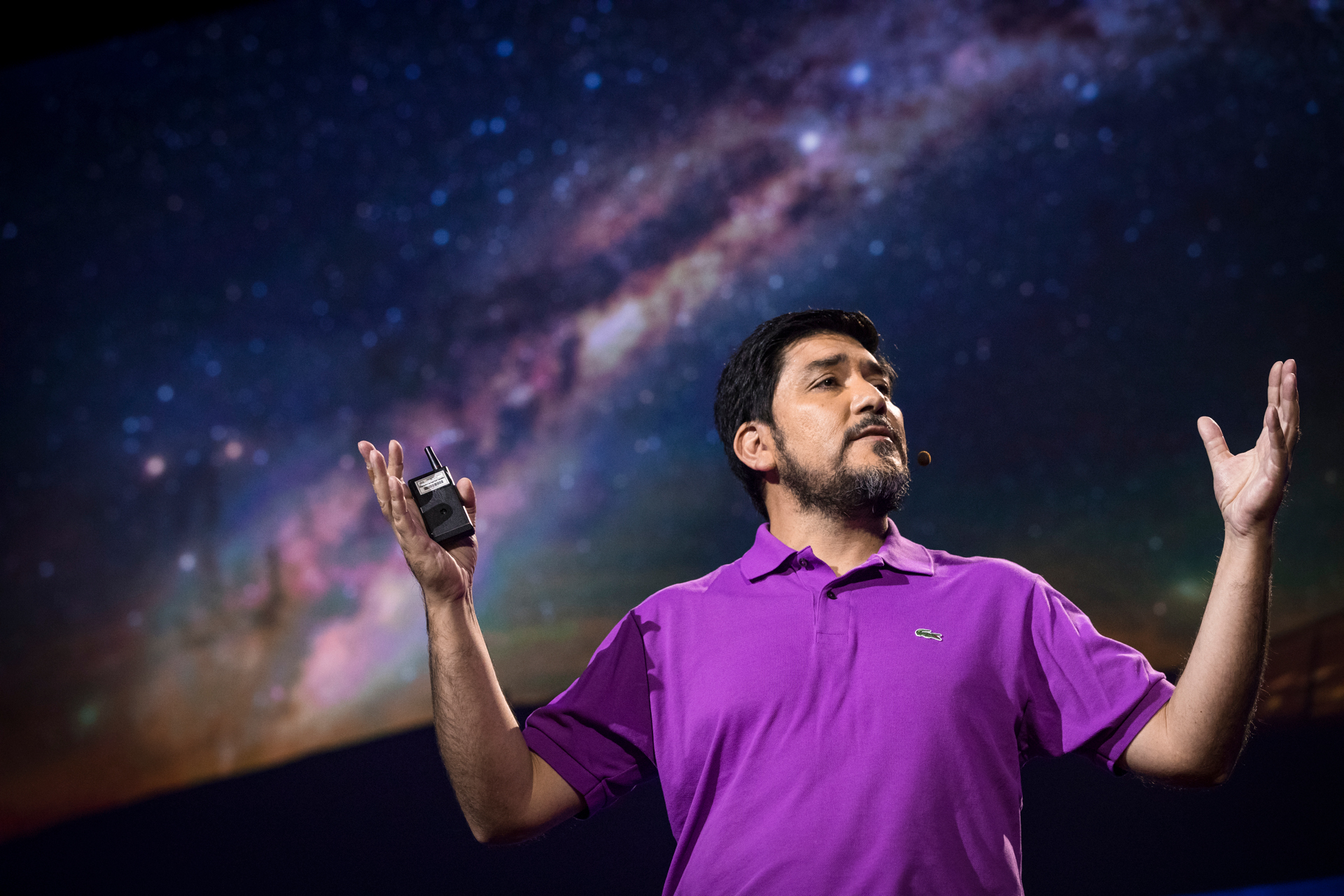
Astrobiologist Armando Azua-Bustos works in the Atacama Desert, the driest and oldest desert on Earth, and home of many of the world’s space telescopes. He speaks at TED2017, April 24, 2017, Vancouver, BC, Canada. Photo: Ryan Lash / TED
How to investigate the possibility of life on Mars without a space ship? Astrobiologist Armando Azua-Bustos looks to the next-closest place: the Atacama desert of northern Chile, the oldest and driest desert on Earth. Azua-Bustos studies this arid, UV-radiation-flooded landscape looking for clues to how life manages to thrive against the odds, from microalgae that grow on spiderwebs gathering dew at the entrance of a cave, to dessicated microbes that live in the soils of María Elena South, the Atacama’s driest region (and only a 15-minute drive from the mining town where Azua-Bustos was born) – gathering evidence that a place as arid as Mars could be inhabited, and possibly changing our definition of life and how to look for it in the universe.
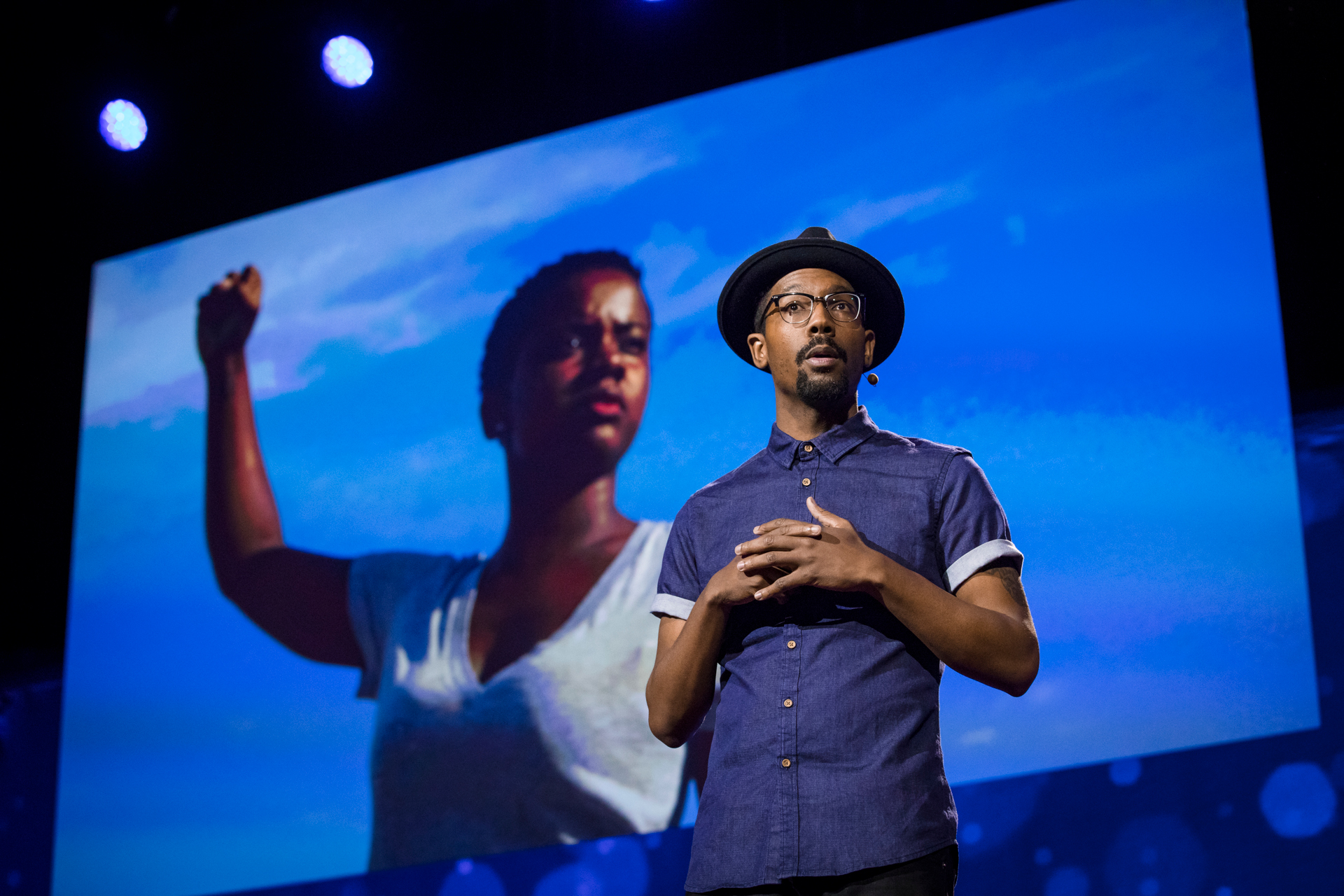
Damon Davis created a powerful documentary of the protests in Ferguson, Missouri, living among the neighbors and celebrating their sense of community. He speaks at TED2017, April 24, 2017, Vancouver, BC, Canada. Photo: Ryan Lash / TED
When musician, visual artist and filmmaker Damon Davis went to join the protests in Ferguson, Missouri, in 2014, what he found surprised him: beyond the anger, a sense of love for self and community. This changed to fear when the militarized police arrived on the scene, but the courage of the people around him was contagious, and in a moment of personal transformation, he came to grips with his terror and joined in. With his creative partner Sabaah Folayan, Davis began to shoot a documentary, Whose Streets?, which he calls “the story of the Ferguson rebellion told by those who lived it.” The role of the artist is to be a conveyor of courage, says Davis. “Once I learned fear wasn’t put in me not to cripple but protect me, and once I figured out how to use that fear, I found my power.”
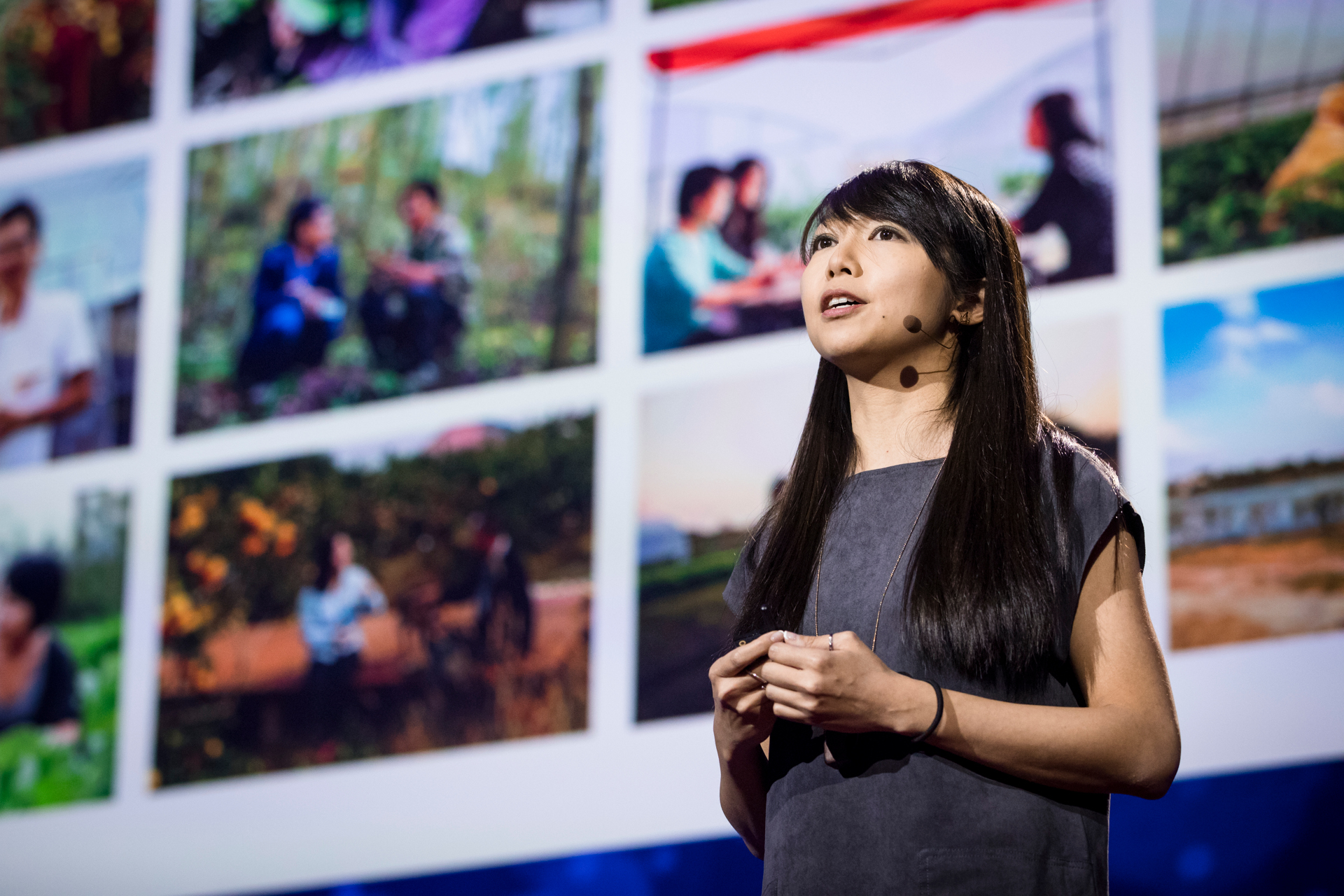
Matilda Ho founded China’s first online farmers’ market. She speaks at TED2017, April 24, 2017, Vancouver, BC, Canada. Photo: Ryan Lash / TED
In China, says entrepreneur Matilda Ho, everyone is in a hurry – and this attitude of haste has a profound affect on the country’s food systems. “In 2016, the Chinese government revealed half a million food safety violations in just 9 months,” she says, and one in three of the world’s diabetics is now in China. To counter these problems, Ho launched China’s first online farmers’ market, a company that delivers organic food directly to customers. Its zero-tolerance policy towards hormones, antibiotics and pesticides means that supplies are limited – in fact, for a long time the company could find little fruit and no meat to offer its clients. While Ho tries to grow her farmers’ market, she’s simultaneously establishing a VC platform and accelerator to encourage more sustainable food startups.
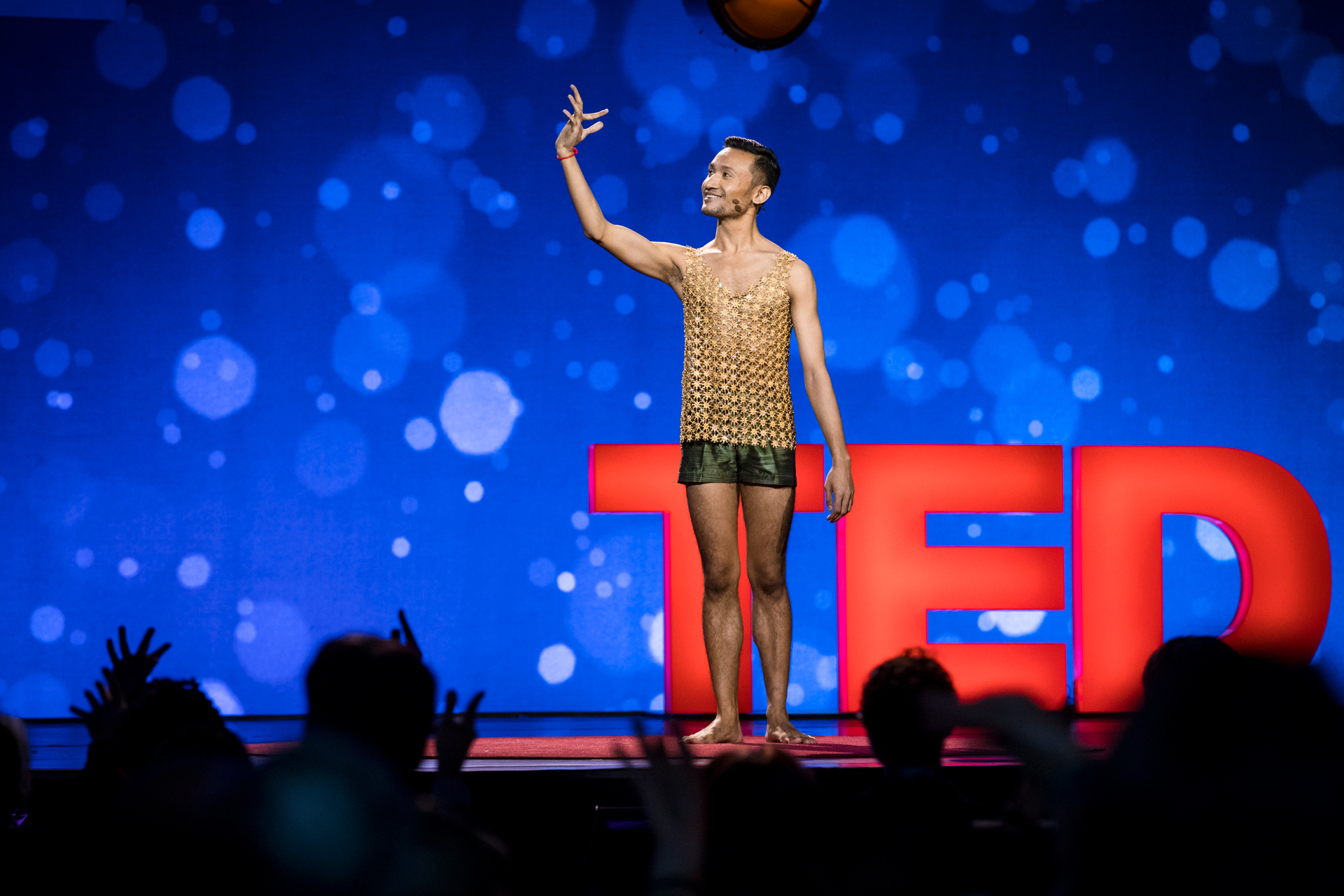
Prumsodun Ok shares the rich history of dance in Cambodian culture at TED2017, April 24, 2017, Vancouver, BC, Canada. Photo: Ryan Lash / TED
For centuries, dancers in Cambodian culture were seen as living bridges between heaven and earth, says artistic director Prumsodun Ok. With masterful intensity, Ok unfurls the rich tapestry of Cambodian history and dance up until the Khmer Rouge genocide — which almost completely destroyed this cherished heritage. That is, until the teacher of his teachers led a revival of the art form; now, Ok pledges to continue nurturing this dance with his own troupe. As he says: “Beauty has the ability to grow anywhere and everywhere at any time.”
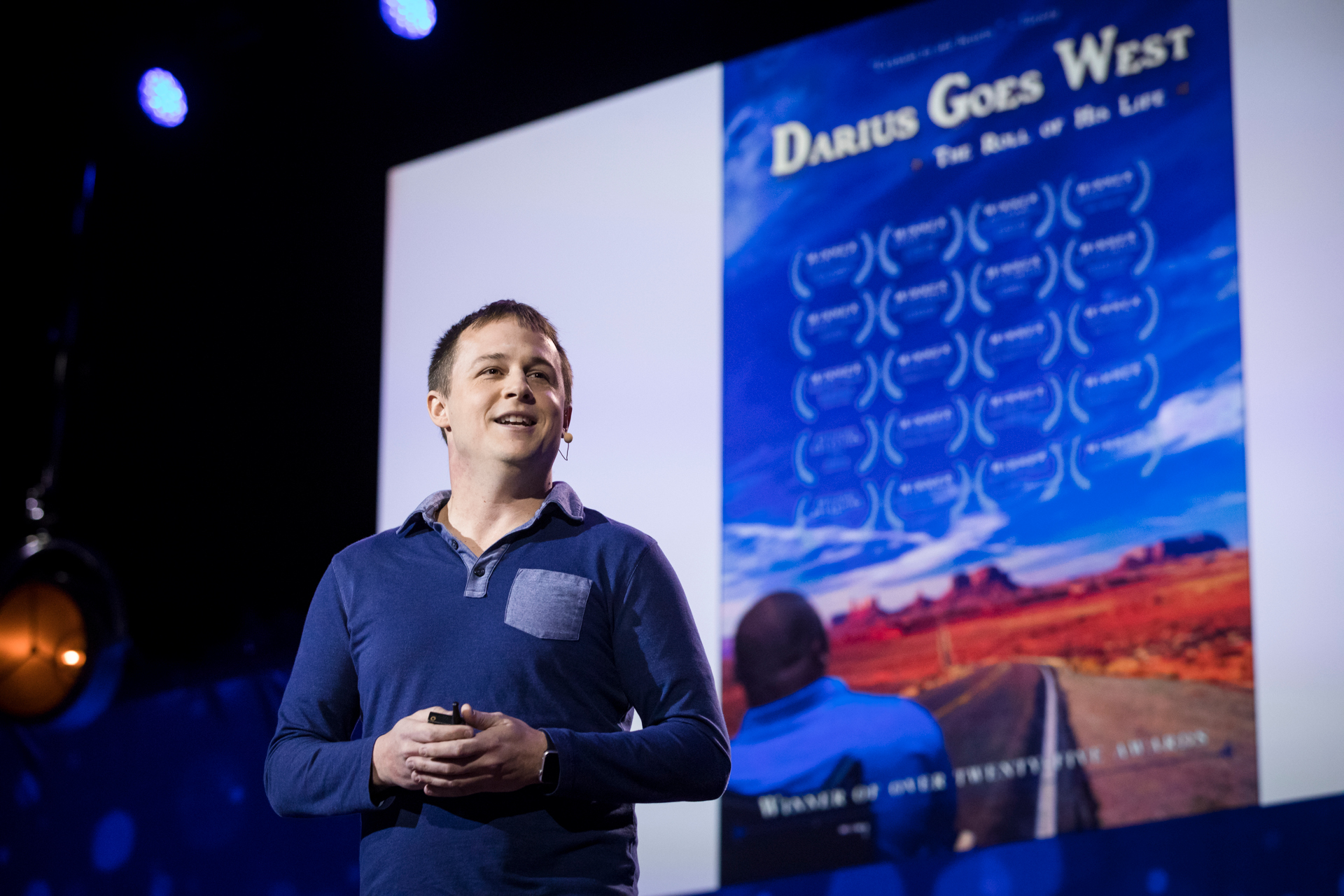
Logan Smalley tells the story of his friend Darius at TED2017, April 24, 2017, Vancouver, BC, Canada. Photo: Ryan Lash / TED
In 2009, Logan Smalley directed Darius Goes West, a documentary starring his friend, the then-15-year-old Darius Weems (both from the inaugural class of TED Fellows), who suffered from Duchenne muscular dystrophy (DMD), a rare degenerative and fatal childhood disease. The film followed Weems on a road trip across the United States, hoping to convince MTV to customize his wheelchair on the show Pimp My Ride. The film helped raise awareness and $2.5 million in funds to support promising DMD research – including trials for a drug called EXONDYS 51. Seven years later, on September 19, 2016, EXONDYS 51 became the first FDA-approved treatment for DMD in history. One week after celebrating this breakthrough, Weems celebrated his 27th birthday – and two weeks later, he passed away. In his own words: “I’ll be smiling when I leave, because when I die, folks ain’t gonna say ‘Darius gone, they’re gonna say Darius gone west.’”
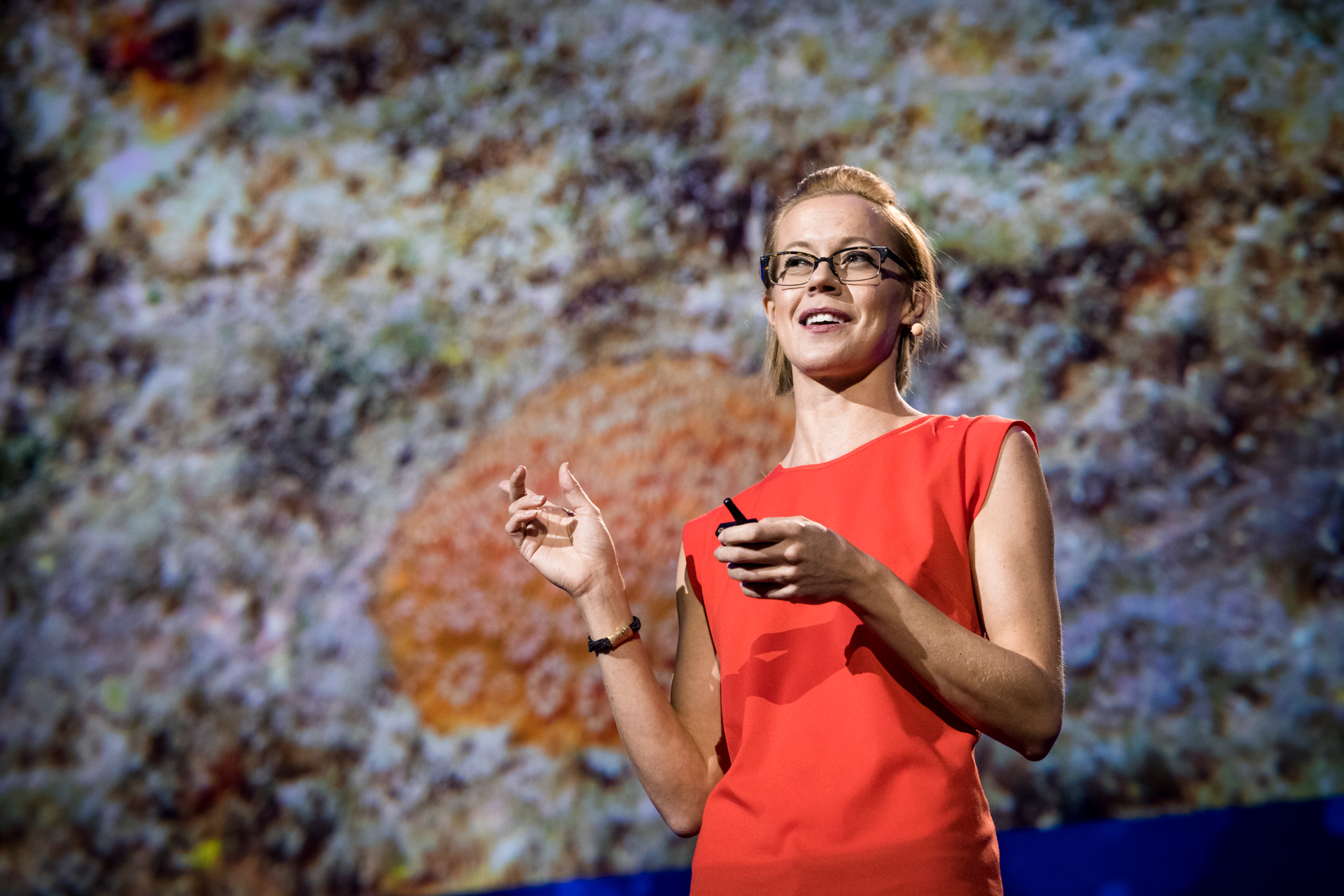
Senior Fellow Kristen Marhaver studies baby corals, and asks us to think of their long-term success. She speaks at TED2017, April 24, 2017, Vancouver, BC, Canada. Photo: Ryan Lash / TED
The first time coral scientist Kristen Marhaver cried underwater was when she saw the devastation of coral in Curaçao after a major storm. She asked herself then, “If a coral could die that fast, how could a reef survive?” Coral reefs in the Pacific are dying, it’s true — and at an alarming rate, particularly from bleaching episodes brought on by higher water temperatures. But there’s reason for hope. To show how resilient corals can be, Marhaver points to the scientific record of how coral reefs in the Caribbean have fared over the last few decades. Given time, more stable temperatures and protection from such stressors as pollution and overfishing, she says, corals can and will recover from traumatic events over the long haul – a reminder of why humans should keep working towards their recovery. “Corals have always been playing the long game,” she says, “and so are we.”

Multi-instrumentalist Kayla Briët performs on the guzheng zither, keyboard and loop pedals at TED2017, April 24, 2017, Vancouver, BC, Canada. Photo: Ryan Lash / TED
Kayla Briët draws on her mixed cultural heritage – which includes the Prairie Band Potawatomi Nation – to create films and music in her own unique style. Today she performs a medley of original songs with a loop pedal, Chinese guzheng zither, keyboard and voice. Her medley includes the songs “Another World,” “Color” and “Odyssey” – as she says, “songs about growing into your own skin and finding your place in the universe.”